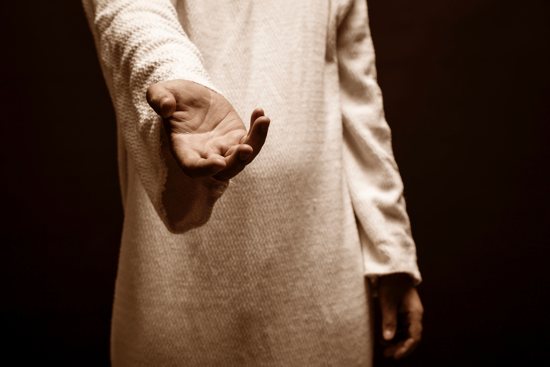
In our media-saturated world, it’s never been easier to share our opinion. All it takes is an effortless click to post it on social media. When we feel strongly about an issue, we want others to know that we have an opinion that’s founded on virtue. We like to demonstrate the moral correctness of our positions and actions. We want people to know we are of good character and virtuous. Sporting an “I gave blood today” pin, or an “I voted” sticker are innocent examples. Virtue signaling seems to be ubiquitous today, but it’s nothing new.
In Sunday’s Gospel, Jesus gives the chief priests and elders a chance to share their opinion. “What is your opinion?” he asks, and then tells the scenario of the two sons asked to work in their father’s vineyard. One is virtuous; the other isn’t. We are surprised to hear that the virtuous one is not the one who readily agreed to do his father’s will. Rather, the virtuous one is the son who first balked at doing his father’s will, but then changed his mind and went to work. Then Jesus shocks his audience further by saying, “Amen I say to you, tax collectors and prostitutes are entering the kingdom of God before you.” After the chief priests and elders signal their virtue, Jesus calls out their claim to moral uprightness.
In her short story, “The Lame Shall Enter First,” Flannery O’Connor similarly shocks readers. Sheppard is a well-meaning do-gooder who makes a great effort to reform a juvenile delinquent boy, Rufus, while neglecting his own son, Norton. He prides himself on his compassionate plan to reform Rufus, the lame boy, into an upstanding and successful citizen. All the while, Sheppard neglects and disdains his own son who is mourning his mother’s death and desperately craves his father’s love. Rufus, the delinquent boy, has contempt for Sheppard’s efforts. Trapped by the snare of evil, he acts out, with desperate attempts for attention. Yet he knows that he cannot save himself. Norton invites Rufus to read the Bible with him. Together, the two boys come to believe that only Jesus can save them. This disgusts Sheppard, who believes the Bible is a crutch for people who can’t make it through life on their own. Rufus contemptuously rejects Sheppard’s attempts to save him, and Sheppard’s prideful attempts at virtue in the end fall flat.
Rufus and Norton, both failures by the world’s standards, are the lame who enter the kingdom first. They enter first, not because of their sins, but because they know they need a savior. Likewise, the tax collectors and prostitutes who Jesus says enter the kingdom of God “before you,” do so, not because of their sins, but because they know they need a savior.
There’s nothing wrong with being virtuous; indeed, we should all strive for virtue. But if we think our virtue will save us, or anyone else, we may not be first in line for the kingdom. Like the son who changed his mind, today’s Gospel challenges me to ask myself, “Where do I need to change my mind, and so accept the salvation offered me by Jesus Christ?”
Father Skluzacek is director of pastoral formation at The St. Paul Seminary in St. Paul. He can be reached at sklu9211@stthomas.edu.
Sunday, Oct. 1
Twenty-sixth Sunday in Ordinary Time



